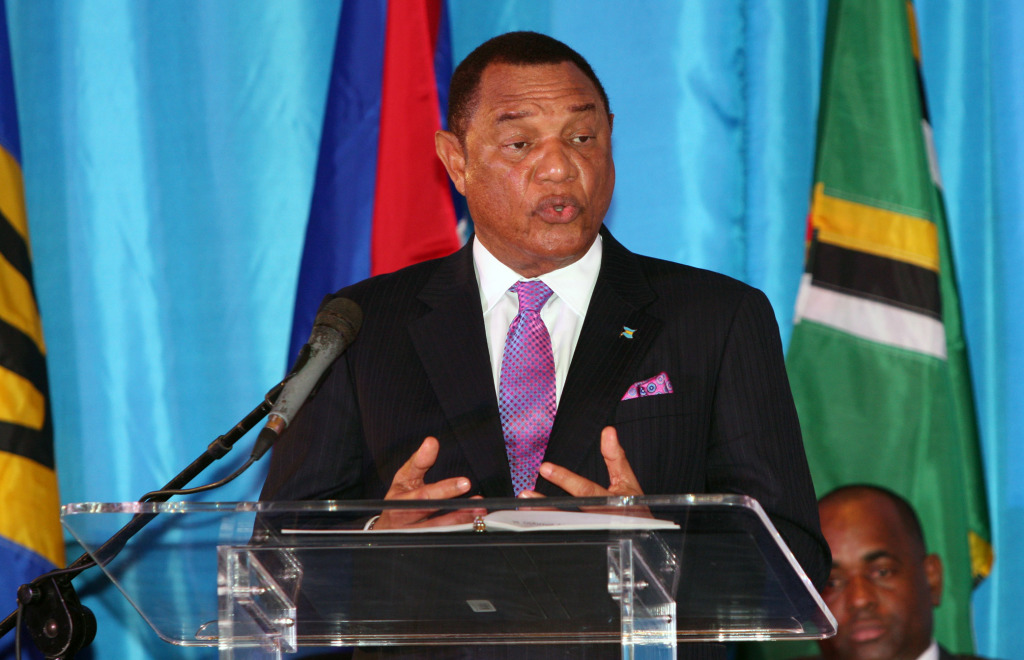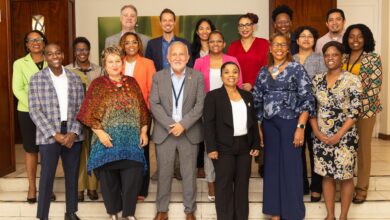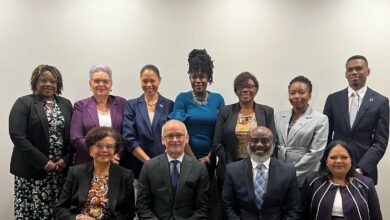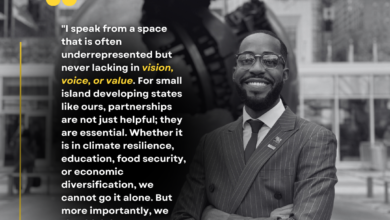UNITED NATIONS, Mar 31, CMC – Caribbean Community (CARICOM) countries are still grappling with the effects of global economic crisis as well as the impact climate change, Bahamas Prime Minister Perry Christie has said.
Addressing the Economic and Social Council of the United Nations, Christie, who is the CARICOM chairman, said that regional countries are acutely aware of the complexity of the global economic environment and the major transformation underway in the world economy.
“Indeed, the aftermath of the global economic and financial crises has translated into a less than favourable international context for Small Island Developing States (SIDS) in the CARICOM region into much of the next decade or so,” Prime Minister Christie told the High-Level Interactive Dialogue on Monday held under the theme ‘The International Decade for Action: Progress achieved and lessons learned for sustainable development’.
He told the delegates that the process of climate change has emerged as a global issue, with the increased frequency and severity of climatic events, along with the growing incidence of health pandemics and the risk of terrorism and war threatening to set back the development gains achieved over time by developing countries in particular.
“Given its susceptibility to external shocks, the global realities and challenges are either mirrored or heightened in the CARICOM region, evidenced in persistent low growth rates and crippling external debt, as well as in growing unemployment, especially among our youth.”
Prime Minister Christie said that CARICOM has adopted either home-grown or multilaterally-supported stabilisation and structural adjustment programmes, which have not yet resulted in sustained growth in those member states experiencing significant macro-economic imbalances.
He said revitalizing economic growth is therefore of critical importance to preventing further deterioration in the region’s human development gains and thus the Region has embarked on a plan to reposition itself.
“It is apparent that such a plan must take into consideration the rising levels of unemployment, particularly in the youth, which exists alongside skill shortages in several key areas.
“We acknowledge that such a repositioning must therefore be one which reviews in a holistic manner, the content and focus of our education and training systems, and places emphasis on areas including innovation and creativity; digital literacy and entrepreneurship; as well as issues of gender and inclusiveness.”
Prime Minister Christie told the Council that last year, regional leaders approved a five-year strategic plan for the future development of the regional integration movement, describing it as “an ambitious document, which lays out a comprehensive plan for building economic, social and environmental resilience in the Community, as well as strengthening governance along with coordinated foreign policy, research and development, and innovation.
“Needless to say, among the priorities identified is the need to build competitiveness and unleash key economic drivers to transition to growth and generate employment.
“This would be addressed across all areas of the Plan: economic, social, environmental and technological, and across all sectors of the economy, including the agricultural sector – a sector largely untapped in this regard.”
Prime Minister Christie said efforts would be made to advance human capital development, through the enhancement of key skills, education reform and youth development.
“We will build capacity and create green jobs in our efforts to manage adaptation to climate change and mitigate it effects, and enhance our resilience to natural disasters. And we will forge a culture of innovation, increase job creation, entrepreneurship and new business development in Information and Communication Technology (ICT).”
He said regional leaders at their last inter-sessional summit in Nassau had focused on best they could leverage the region’s human, cultural and natural assets for the development of the Caribbean.
“We considered steps and actions to put in place the necessary enabling environment for our creative and cultural industries to thrive and increase their contribution to our overall development.
“We expanded our range of potential growth poles to include, for example, our sporting assets, in a bid to encourage new thinking in seeking to generate employment and create avenues for entrepreneurship.”
But he said to accomplish these goals, the Caribbean would the support of the international community. “In this connection, CARICOM has been keen to align our plan with that of the international agenda, and to ensure that the special needs of the Region, and SIDS in general, are central to the Post-2015 Development Agenda and Sustainable Development Goals.
“We believe that with a renewed commitment to a global partnership for development, we would be able to provide the necessary support to Regional and national efforts to achieve the proposed Sustainable Development Goals, including the proposed goal 8, entitled “Promote sustained, inclusive and sustainable economic growth, full and productive employment and decent work for all,” he told the UN Council.






